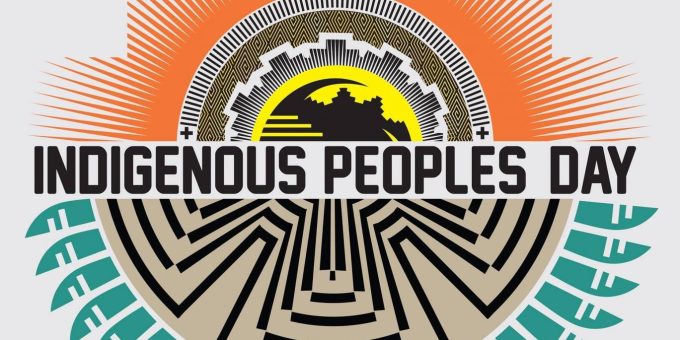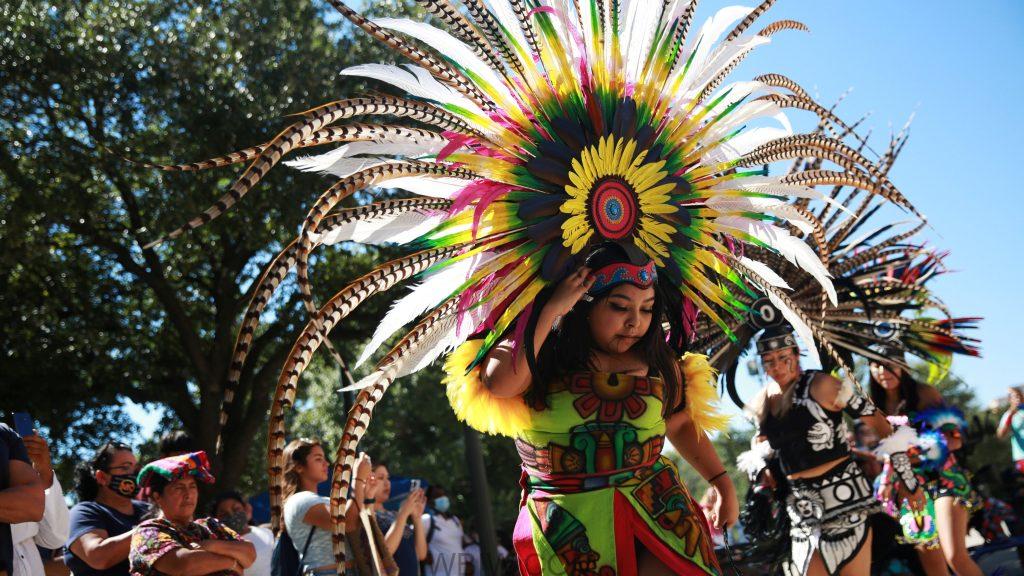
Bloomington, Ind. – Indigenous Peoples Day honors the Native or Indigenous Peoples of North America in all their diversity and complexity.

While not a federal holiday, it is celebrated by more than a dozen states and more than 130 cities. In 2018, Mayor Hamilton proclaimed October 8 as Indigenous Peoples’ Day, making Bloomington the first city in Indiana to recognize the important day.
The following year, the Bloomington City Council voted to declare every second Monday in October as Indigenous Peoples’ Day in Bloomington. Yesterday was a day to honor and reflect on the arts, culture, and histories of native and indigenous people as well as reckon with our shared history and what we can learn from it.
Indigenous people lived in the area that became Indiana long before settlers of European descent came here. Their contributions to this area and to our ability to live on and work this land are immeasurable. We are connected to this land and to the strong, resilient earlier people that called it home.

The Woodland native cultures developed domesticated varieties of wild plants and used local clay to make pottery. The limestone surrounding them, which they used to temper that clay, was nearly a thousand years later carved by skilled craftspeople into finely detailed images to be used on buildings and monuments in Indiana and around the United States. Indiana University is largely built of this local limestone. The history of this land and the people that have lived on it is connected to the people that live, work, and learn on it Monday.
“Indigenous Peoples’ Day is an opportunity to celebrate the cultures and values that Indigenous Peoples of our region add to the communities in Bloomington, throughout Indiana, and globally,” said Mayor John Hamilton. “Part of being a City that believes in progress and equity is being a City that reckons with its full history. For this reason, we acknowledge this day, and each time we gather in this place, we acknowledge the history of this land with a spoken land acknowledgment. We recognize that the city of Bloomington sits on Native land. The city as well as City administrative buildings are on the traditional homelands of the Miami, Delaware, Potawatomi, and Shawnee people and we acknowledge they are past, present, and future caretakers of this land. We also acknowledge that much of the economic progress and development in Indiana and specifically Bloomington resulted from the unpaid labor and forced servitude of People of Color – specifically enslaved African labor. We acknowledge that this land remains home to and a site of gathering and healing for many indigenous and other people of color and commit to the work necessary to create and promote a more equitable and just Bloomington. We move forward knowing and acknowledging our rich, complicated, and sometimes painful past so that we can learn from it and create a true land of opportunity.”
Learn more about Indiana’s Indigenous history by visiting:
- The Indiana DNR site at https://bton.in/C5pej
- Indiana University First Nations Education & Cultural Center at https://bton.in/3ctX-
- The Eiteljorg Museum’s statement on Indigenous Peoples Day at this link.



